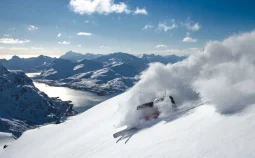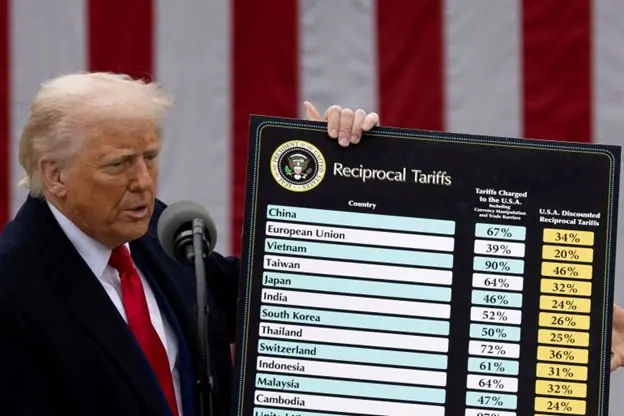A few years ago, it felt like American ski resorts were booming. The lifts at Aspen were packed, the powder at Jackson Hole was world-class, and international visitors were flocking in. But lately, something has shifted. Lift lines are shorter, and not in a good way.
You’ll hear locals whisper it over après-ski beers, and resort managers admit it behind closed doors: the U.S. ski industry just isn’t pulling in the international crowds it used to. And while a lot of factors play into that trend, one major turning point seems to trace back to Donald Trump’s trade war.
The Trade War’s Hidden Avalanche
Back when Trump started slapping tariffs on foreign steel and goods, it might’ve sounded like inside-baseball economics, nothing the average skier would think twice about. But the reaction from other countries was swift: retaliatory tariffs, tighter visa rules, and a general cooling-off of foreign relations.
The tourism industry, especially the high-end ski sector, got caught in the crossfire.
Suddenly, a ski trip to Colorado or California didn’t look quite as appealing to travellers from Europe or Asia. Flights were more expensive, getting a U.S. visa became more of a hassle, and politically, America didn’t seem quite as welcoming. Ski holidays that once felt aspirational began to feel repugnant to many in the UK and the rest of the world.
Resorts Left in the Cold
Resorts like Vail and Park City used to rely on international guests to fill premium chalets and luxury hotels. Now, many are shifting their focus to domestic skiers. That’s not necessarily a bad thing, but it’s a different market. American travellers tend to book shorter trips, spend less on amenities, and are less likely to splurge on those multi-resort passes or fine-dining mountain meals.
Even staffing has taken a hit. The ski industry leaned heavily on seasonal workers from overseas, many of whom came through cultural exchange or temporary work visa programs. Stricter immigration policies in the Trump era made that pipeline less reliable, leaving some resorts scrambling to fill jobs during peak season.
Europe, Japan, and Canada: The Beneficiaries
While U.S. resorts were navigating political fallout, other ski destinations were happy to roll out the red carpet. Europe’s alpine giants, places like Val d’Isère and St. Anton saw an uptick in American and Asian visitors. Japan’s powder-heavy slopes in Hokkaido boomed with Australians and Koreans. Even Canada gained ground, with Whistler becoming a go-to alternative for travellers wary of U.S. politics.
These destinations weren’t just easier to visit, they felt more aligned with the values and expectations of global travellers. Friendly visa policies, consistent marketing, and a sense of cultural openness helped them win where the U.S. was losing ground.
Can U.S. Skiing Bounce Back?
There’s still plenty to love about skiing in the United States, epic terrain, top-notch infrastructure, and a huge variety of landscapes. But the industry can’t ignore the impact of policy on perception. If international guests feel unwelcome or inconvenienced, they’ll go elsewhere, and they are.
Some resorts are making moves to recover, focusing on sustainability, diversifying their appeal, and trying to rebuild international relationships. But the damage from the trade war isn’t just about economics. It’s about the image America projected to the rest of the world, and whether skiers still feel like it’s worth the trip.
Why Fewer People Are Skiing in the U.S: A Summary
What’s happening in the U.S. ski scene is a reminder that tourism doesn’t exist in a vacuum. It’s shaped by headlines, policy, and even tweets. And while snow falls the same no matter who’s in office, the decision to book a flight to it can be a lot more complicated.
We asked our MD Angus, if he would consider skiing in the USA in the current climate. Angus said, “I won’t be skiing in the USA while Trump is in power, not because of the snow conditions, but because I prefer my avalanches natural, not political. Who needs chairlifts when the USA is already going downhill faster than any of their ski lifts can go up?”
Chat with our experts
For tips and advice on booking your next ski holiday, call our expert sales team on:
020 8313 3999 All Ski Deals
All Ski Deals
